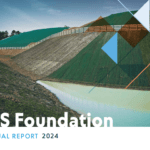Don’t be caught out by fake emails claiming to be from IGS!
You may have received an email claiming to be from IGS, asking you to disclose personal details, seeking your help for other members on some personal matter such as visa, travel or financial difficulties, asking for payments or promising you a cash prize. Such emails are a fraud, commonly known as “phishing”.
Phishing
‘Phishing’ is an email fraud practice intended to gather personal information by deception. Fraudsters pose as a trusted source and try to get you to divulge your personal details. Similar scams may appear as text messages or phone calls.
If you suspect that you have received a fraudulent email pretending to be from IGS:
-
- Don’t click on any links or attachments
- Block the sender and/or mark the email as junk
- Please report a phishing email to igssec@geosyntheticssociety.org so that we can take further action as appropriate
Legitimate emails from IGS will not have been sent from a web-based mail server such as Gmail, Hotmail, Yahoo, etc.
Fraudsters may have been able to use some of your personal information such as your name, course of study, job title or IGS Chapter to make the email appear more genuine. Do not be fooled. This is still a fake email.
If you have followed a link in a phishing email
-
- If you have entered any financial details, contact your bank immediately and tell them that you have been the victim of an email scam. Do not wait to contact IGS before doing this.
- If you have entered your IGS website password, you should change it on your account page. If you have used this password on other accounts, change it on those as well.
- Run a full antivirus scan on your computer or device.
Phishing is a common problem, and while no organisation can ever be 100% secure, following the above guidance will go a long way to protecting you and other IGS members.






















